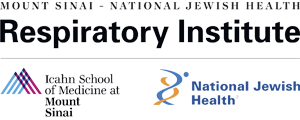What is Chronic Obstructive Pulmonary Disease (COPD)?
Chronic Obstructive Pulmonary Disease (COPD) is a lung condition that causes shortness of breath with exertion that slowly develops over many years.
COPD is diagnosed by a simple breathing test, called spirometry. The presence or absence of COPD can only be determined by spirometry along with a complete medical history and physical examination by an experienced pulmonary physician. Individuals with COPD have narrowing of the air passages in the lungs with difficulty breathing out as fast as healthy people. People who have COPD have one or both of the following conditions:
- Emphysema – destruction of the air sacs, called alveolae, of the lungs
- Airway disorder – inflammation, scarring, and narrowing of the air passages, called bronchi, of lungs
People with COPD may also have excessive mucus in the air passages with cough, called chronic bronchitis.
These abnormalities make breathing difficult.
Acute Exacerbations of COPD
An acute exacerbation of COPD is a situation in which the lung condition gets worse over a day or so. Symptoms may be increased cough, increased mucus, increase in shortness of breath, and increased need for bronchodilator medications and oxygen. Acute exacerbations of COPD may follow a virus infection such as a head cold. Scientists and specialists at the Mount Sinai - National Jewish Health Respiratory Institute know that frequent exacerbations of COPD (two or more a year) lead to decreases in lung function and reduce quality of life. COPD exacerbations may lead to hospitalization.
The treatment of acute exacerbations of COPD may include an increase in bronchodilator medications, short-term oral steroid therapy, and antibiotics. An increase in oxygen may be also necessary over this period.
COPD Co-morbidities
Experts at the Mount Sinai - National Jewish Health Respiratory Institute understand that other medical conditions go hand in hand with COPD and can make the symptoms and seriousness of COPD much worse. These are called COPD co-morbidities and include heart problems, loss of bone (osteoporosis), diabetes, muscle weakness, and emotional problems such as depression, anxiety, and panic.
During your evaluation at the Mount Sinai - National Jewish Health Respiratory Institute our specialists focus on the whole person and make certain that these co-morbidities are identified and managed. Special studies may be needed and other specialists are available to help.
